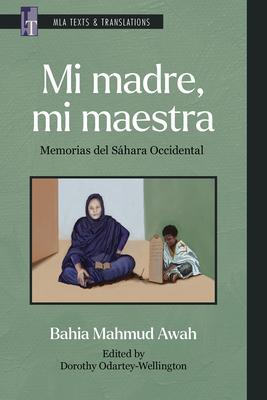A memoir of traditional and postcolonial life in North Africa
Separated from his family in the aftermath of the failed decolonization process in Western Sahara, Bahia Mahmud Awah was sustained by recollections of his mother. In this memoir, he describes her sacrifices, her optimism, and her deep love. His family's experiences exemplify the larger story of loss and displacement in the region even as his story shows how shared memories can nourish community and culture across generations, even in exile. Incorporating poetry in Hassaniya, the traditional Saharawi language, the work highlights the role of language in shaping identity and resisting colonialism.
First published in 2011 as La maestra que me ense en una tabla de madera (The Woman Who Taught Me on a Wooden Slate), this edition includes a new epilogue by the author featuring further remembrances of his mother and examples of her poetry.

Mi Madre, Mi Maestra: Memorias del Shara Occidental
A memoir of traditional and postcolonial life in North Africa
Separated from his family in the aftermath of the failed decolonization process in Western Sahara, Bahia Mahmud Awah was sustained by recollections of his mother. In this memoir, he describes her sacrifices, her optimism, and her deep love. His family's experiences exemplify the larger story of loss and displacement in the region even as his story shows how shared memories can nourish community and culture across generations, even in exile. Incorporating poetry in Hassaniya, the traditional Saharawi language, the work highlights the role of language in shaping identity and resisting colonialism.
First published in 2011 as La maestra que me ense en una tabla de madera (The Woman Who Taught Me on a Wooden Slate), this edition includes a new epilogue by the author featuring further remembrances of his mother and examples of her poetry.